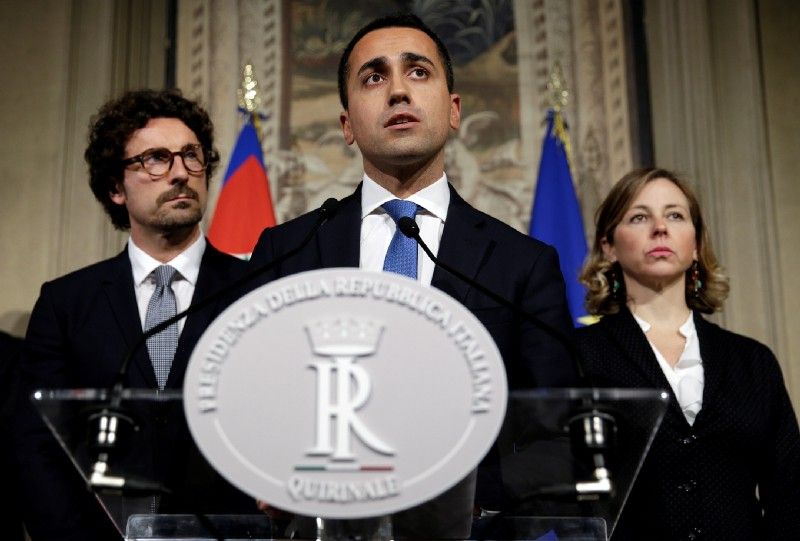May 15, 2018
When it comes to political dysfunction, Italy is an innovator. In the 73 years since the fascist regime of Benito Mussolini collapsed, the country has had 64 governments (soon to be 65).
Yet as my pal @gflipton explains, an unlikely pact between Italy’s left-wing 5-Star Movement and far-right Lega, which should be finalized this week, would represent an even more novel accomplishment: a marriage of evenly-matched populist parties from opposite ends of the political spectrum that even the most creative anti-establishment leaders have struggled to emulate elsewhere.
But beyond a shared disdain of the status quo and establishment politicians, there are few areas of agreement between Five-Star and the League, meaning that this marriage could be a rocky one.
Perhaps the thorniest issue is fiscal policy, where both parties want to put more money in Italians’ pockets, but disagree on how to do that: 5-Star wants to implement a universal basic income scheme for all citizens, while the League favors a 15 percent flat tax. Either of those options would severely test Italy’s already-shaky adherence to EU fiscal rules — current estimates suggest they would cost an additional $100 billion to $120 billion a year, a potentially dangerous economic burden for Europe’s second-most indebted country (after Greece).
Can both parties get what they’ve promised their voters without coming to blows with each other or provoking a crisis with Brussels? The 5-Star/Lega tie-up is a political high-wire act with almost no safety net below.
More For You
- YouTube
Gotta maximize sleigh-holder value. #PUPPETREGIME
Most Popular
- YouTube
On Ask Ian, Ian Bremmer breaks down the steady escalation of US pressure on Venezuela and why direct military action is now a real possibility.
US President Donald Trump arrives to announce reciprocal tariffs against US trading partners in the Rose Garden of the White House in Washington, DC, USA, on April 2, 2025.
POOL via CNP/INSTARimages.com
From civil conflicts to trade wars to the rise of new technologies, GZERO runs through the stories that have shaped this year in geopolitics.
Ukrainian serviceman walks near apartment buildings damaged by Russian military strike, amid Russia's attack on Ukraine, in the frontline town of Kostiantynivka in Donetsk region, Ukraine December 20, 2025.
Oleg Petrasiuk/Press Service of the 24th King Danylo Separate Mechanized Brigade of the Ukrainian Armed Forces/Handout via REUTERS
Ukrainian intelligence services assassinated a senior Russian general on the streets of Moscow on Monday, detonating a bomb strapped to his car.
© 2025 GZERO Media. All Rights Reserved | A Eurasia Group media company.
